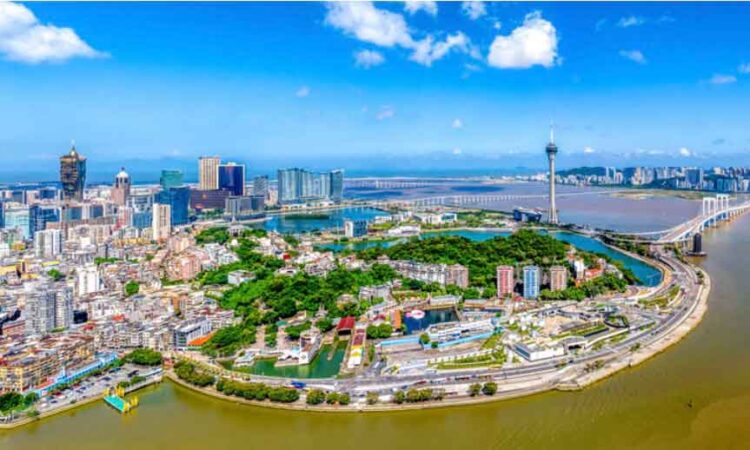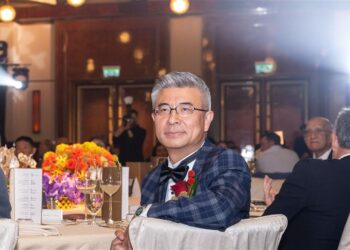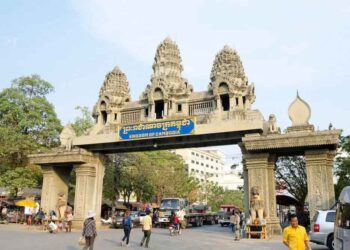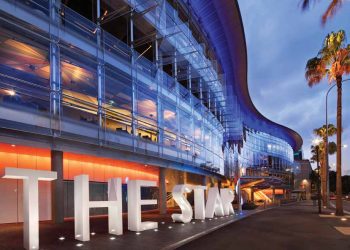Tariff tensions between China and the United States will likely have an indirect impact on Macau by affecting tourism from mainland China and Hong Kong, an academic has told Inside Asian Gaming.
The warning comes amid an ongoing tit-for-tat between the two economic powerhouses, with China whacking retaliatory 84% tariffs on US goods this week, only for US President Donald Trump to respond with tariffs of 125% on imports from China.
Lau Pun Lap, President of the Macau Economic Association, said, “According to trade data, Macau’s exports to the United States last year amounted to about MOP$300 million, while imports from the United States amounted to more than MOP$7 billion, so from a trade perspective the tariffs imposed by the United States do not have a significant impact on Macau’s imports and exports of goods.”
However, as Macau is a service-export orientated economy, the tariff policy would affect Macau’s major service-export markets, specifically mainland China and Hong Kong.
“The tariffs will have an impact on the export of integrated tourism services, especially under the uncertainty of the global economy which would affect the consumer confidence of travelers and investors,” Lau explained.
“Macau’s main source of tourists is mainland visitors. In 2024, 72% of tourists came from mainland China and 52% of those from Guangdong Province, which is an export-oriented place. This would have certain impacts on us.”
The Macau government forecast last year that Macau’s gross gaming revenue would reach around MOP$240 billion in 2025 although that target is already on shaky ground with revenue for the first three months of the year reaching only MOP$57.6 billion.
Lau said it was now looking increasingly unlikely that gaming revenues would achieve the budget target.
“With the current tariffs and global economic uncertainties, gross gaming revenue this year may range from MOP$228 billion to MOP$230 billion and the recovery could be slower,” he said.
In addition, the offshore Renminbi fell to a 10-year low of 7.429 to the dollar on Tuesday night before recovering slightly. Lau pointed out that a weakening RMB might affect tourism spending.
He also noted that Macau, as a micro-economy, is vulnerable to external factors and relies heavily on the mainland market. If the mainland relaxes its measures on visitor arrivals to Macau, it may help to improve the situation.
“Mainland China started to adopt a number of measures to stabilize the economy in the fourth quarter and the fundamentals remain stable and the future economic development remains positive,” Lau said.
“Although Macau would not be directly affected by the tariff policy, there would be an indirect impact. Fortunately, Macau’s fiscal reserves remain strong and can withstand a certain degree of economic impact.”
Previous trade wars between the US and China have shown some minor impact, with the 2018 example leading to a 3.4% year-on-year decline in GGR in 2019. Although there were various reasons for the fall, including restrictions on VIP gaming and demonstrations in Hong Kong, the US-China trade war was considered to be among the major factors.
Lau noted that the current situation is different from 2019 because 70% of Macau’s gaming revenues are now sourced from the mass market.
“Gross gaming revenue in the first quarter of this year grew by 0.6% year-on-year and could improve if economic uncertainties diminish in the second half of the year,” he said.
“Under existing regulations, the Macau gaming market has maintained a certain degree of normal growth but even under normal economic conditions, gambling revenue would only maintain a reasonable and steady growth and would not experience the kind of explosive growth in the past.
“Overall, although it is estimated that GGR this year may not reach the target of MOP$240 billion, it is believed that it will not be too far from the target.”
Tariffs are not the only headwind impacting Macau’s gaming industry, with a recent police operation targeting local jewelry shops for engaging in illegal currency exchange having a short-term impact on the industry.
An insider told IAG that the illegal currency exchange activities were mainly carried out in two well-known resorts on the Cotai Strip and that since the police operation, the existence of money exchange gangs in the casinos of these two resorts have basically disappeared.
The same source added that suspected money exchange gangs were still operating in other casinos.
“The relationship between supply and demand has always existed and it is difficult to eliminate all money exchange gangs within a short period of time,” they said.
As reported by IAG, the police operation saw 22 Macau residents and 11 mainland residents were arrested on suspicion of transferring about HK$590 million (US$74 million) through the jewelry shops concerned.
































